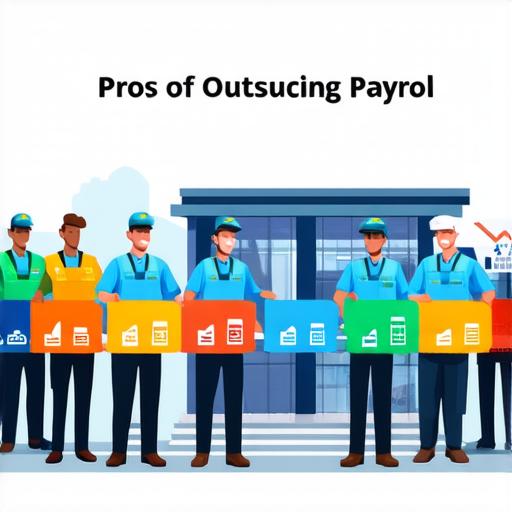What are the pros and cons of outsourcing payroll
BlogPayroll is an essential aspect of running any business. It involves calculating and processing employee salaries, taxes, and benefits, ensuring that employees receive their payments on time and accurately.
Table of Contents
TogglePros of Outsourcing Payroll
- Cost savings: One of the main reasons businesses outsource their payroll is to save money. By outsourcing, you can reduce the cost of hiring and training in-house staff and purchase specialized software to handle payroll tasks.
- Expertise: Payroll is a complex and ever-evolving area of law and accounting. Outsourcing to a third-party provider can provide access to experts in these areas, ensuring that your payroll is handled correctly and efficiently.
- Time savings: Handling payroll in-house can be time-consuming, particularly during busy periods such as tax season. By outsourcing, you can free up staff to focus on other tasks, allowing your business to operate more efficiently.
- Scalability: As your business grows, handling payroll in-house can become increasingly difficult and expensive. Outsourcing allows you to easily scale your payroll operations as needed, without the need for additional staff or software.
Cons of Outsourcing Payroll
- Security concerns: Handing over sensitive employee data to a third-party provider can be a security risk. You will need to ensure that your provider has adequate security measures in place to protect your data and comply with legal requirements.
- Lack of control: When you outsource payroll, you may feel like you have less control over the process. This can be particularly problematic if you have specific requirements or concerns about how your payroll is being handled.
- Communication challenges: Effective communication is essential when outsourcing payroll. You will need to ensure that your provider is responsive and communicates clearly with your business, particularly during times of change or uncertainty.
- Dependence on a third-party provider: If your provider goes out of business or experiences financial difficulties, you may be left without access to your payroll data or support. This can be a significant risk for small businesses that do not have the resources to handle their own payroll.
Case Study: XYZ Company

XYZ Company is a mid-sized manufacturing business based in the United States. The company has been operating for over 20 years and employs around 150 people. For many years, the company handled its own payroll in-house, but as it grew, the process became increasingly complex and time-consuming.
In 2018, XYZ Company decided to outsource its payroll to a third-party provider. The provider was chosen based on their expertise in payroll law and accounting, as well as their ability to provide cost savings through specialized software and pricing.
Over the past two years, XYZ Company has seen significant benefits from outsourcing its payroll. The company has saved money by reducing staffing costs and purchasing specialized software, and it has also gained access to experts in payroll law and accounting. The process is now more efficient, freeing up staff to focus on other tasks and allowing the company to scale as needed.
Personal Experience: John Doe
John Doe is a small business owner based in California. He runs a consulting firm that employs around 10 people. For many years, John handled his own payroll in-house, but he recently decided to outsource it to a third-party provider.
The main reason John outsourced was to save money. He was able to negotiate better pricing with the provider than he could on his own and purchase specialized software that reduced staffing costs.
